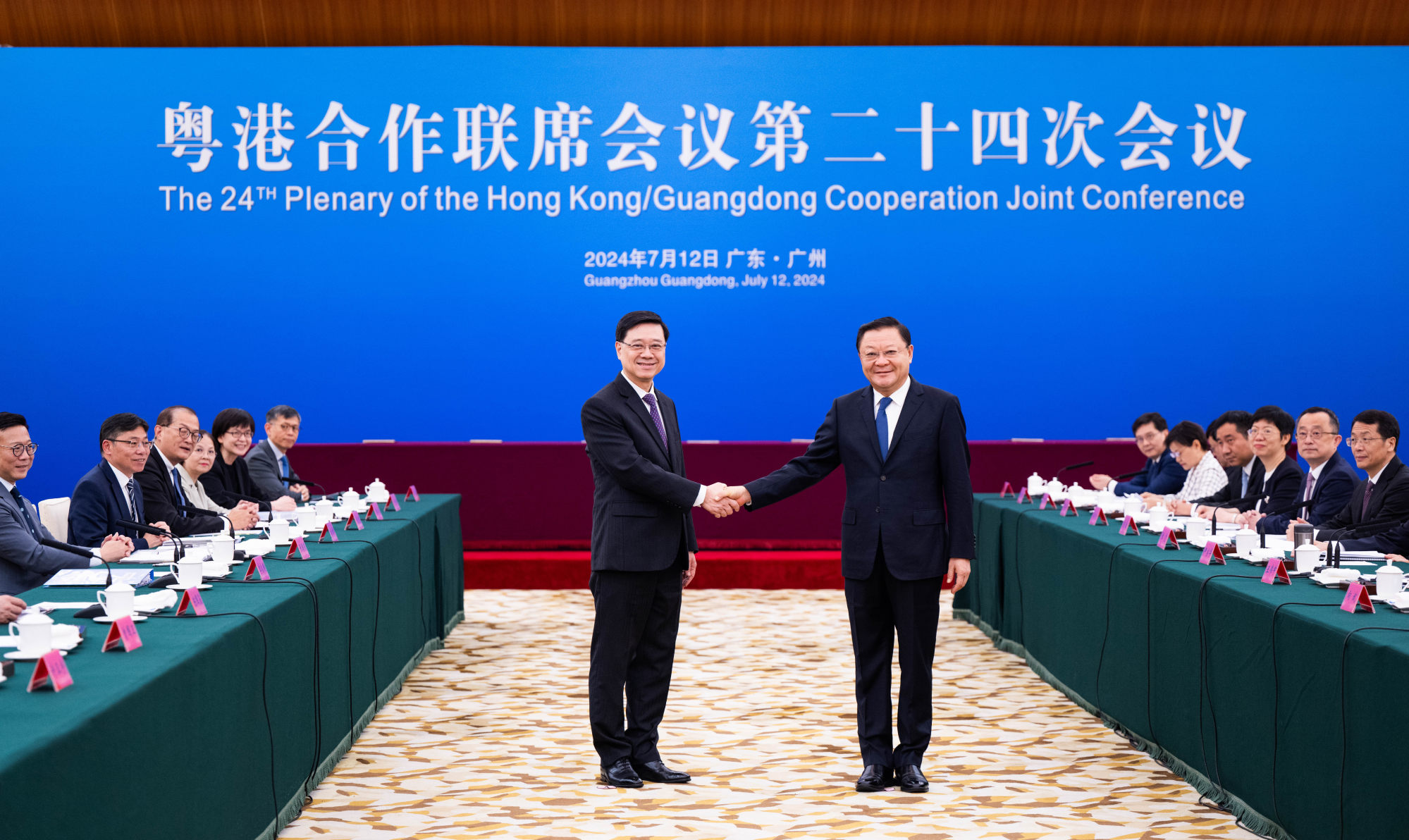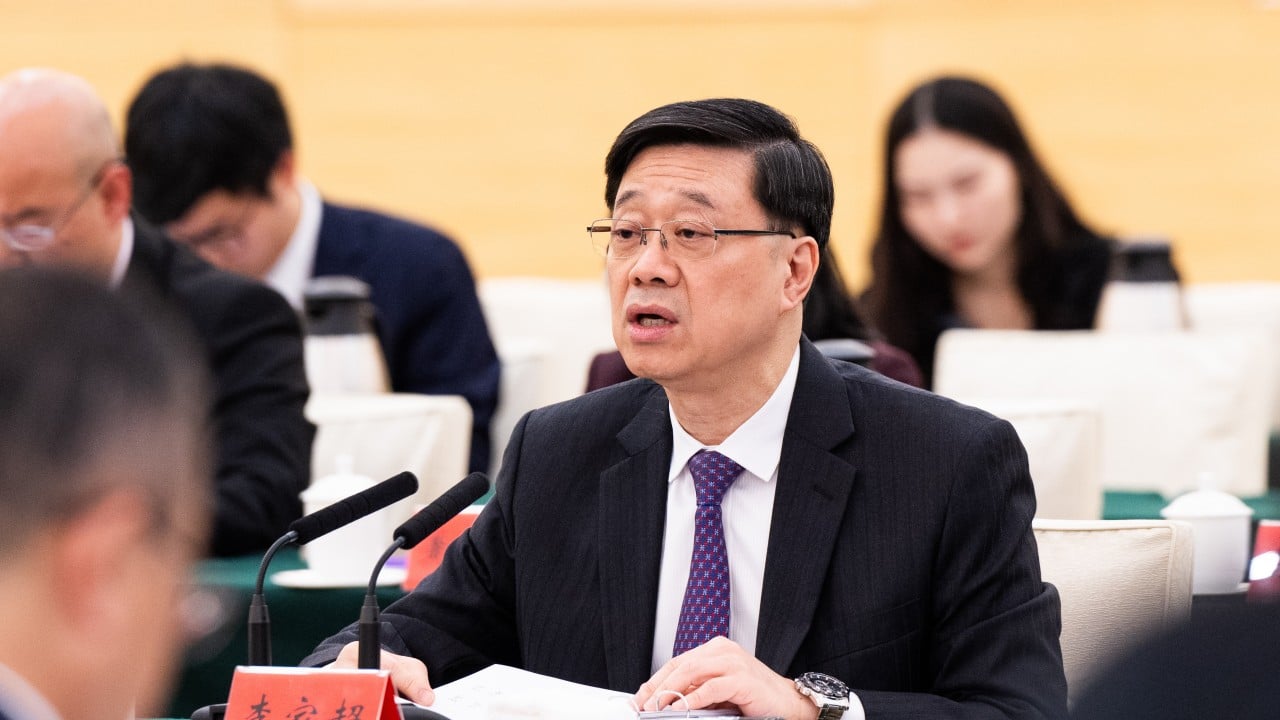Hong Kong and Guangdong signed six cooperation deals on Friday as their leaders met in the provincial capital to discuss closer ties under the Greater Bay Area framework.
The agreements covered areas such as food safety and the exemption of Hong Kong residents from having to sign up for basic pension insurance and unemployment coverage in mainland China.
Hong Kong Chief Executive John Lee Ka-chiu and Guangdong Governor Wang Weizhong witnessed the signings after joining the Hong Kong/Guangdong Cooperation Joint Conference in Guangzhou.
“The Hong Kong government will continue to work closely with the Guangdong provincial government to complement each other’s strengths and achieve mutual benefits and win-win results,” Lee said.
“[We will] deepen various aspects of cooperation, jointly promote high-level cooperation and high-quality development in the Greater Bay Area.”
The other four main areas covered in the deals were agricultural technology, exchanges between justice departments, testing and certification, and healthcare cooperation.
The two sides agreed on cooperation in several priority areas, according to the city’s government. The first item listed was innovation and technology, with the governments set to explore measures to make the cross-border flow of people, stocks and data more convenient.
Other areas included the promotion of the development of Hong Kong’s Northern Metropolis mega project, closer cooperation in medical development, and achieving the national goals of reaching peak carbon emissions and carbon neutrality by 2030 and 2060 respectively.

The bay area is the focus of Beijing’s plan to integrate Hong Kong, Macau and nine Guangdong cities into an economic hub to rival the United States’ Silicon Valley by 2035.
Covering about 56,000 sq km (21,621 square miles), the bay area has a total population of more than 87 million and a gross domestic product of more than 14 trillion yuan (US$1.93 trillion) in 2023.
The 24th edition of the conference was held under the theme of “Taking forward the high-quality development of Hong Kong-Guangdong cooperation, and realising the new strategic positioning of the [Greater Bay Area]”.
Hong Kong hosted the previous joint conference in March last year. This year’s session was originally scheduled to take place in Guangzhou on June 27 but was postponed. No official explanation was offered for the change.
Also part of the Hong Kong delegation were No 2 official Eric Chan Kwok-ki, Deputy Secretary for Justice Horace Cheung Kwok-kwan, Secretary for Constitutional and Mainland Affairs Erick Tsang Kwok-wai, Secretary for Financial Services and the Treasury Christopher Hui Ching-yu, and five other bureau chiefs.
Lee said in his address that Hong Kong had completed its “constitutional duty” to introduce a domestic national security law under Article 23 of the Basic Law mini-constitution in March, and the city was ushering in “the best timing to strive for economic development”.
He vowed to make good use of Beijing’s support and strive to contribute to the country’s efforts to become a global technological power.
Separately, the Hong Kong government announced that Zhongshan Chen Xinghai Hospital of Integrated Traditional Chinese and Western Medicine would be added to the list of places where the Elderly Health Care Voucher could be used from next Thursday.
Eligible Hong Kong elderly can also use the vouchers in the bay area at the two service points operated by the University of Hong Kong-Shenzhen Hospital, as well as one run by First Affiliated Hospital, Sun Yat-sen University.


